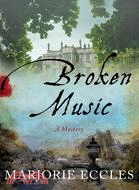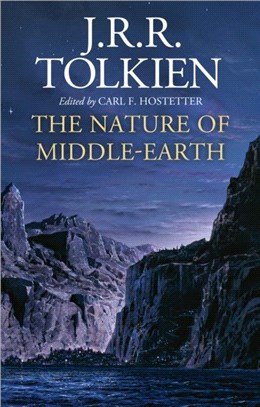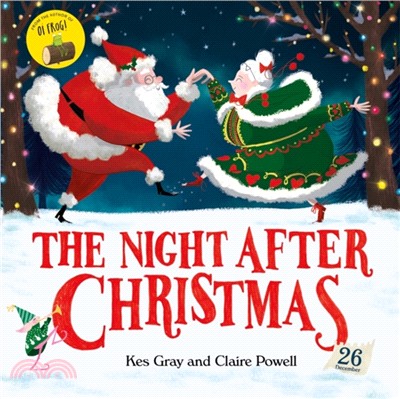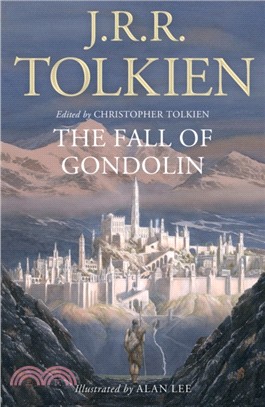Broken Music
商品資訊
ISBN13:9780312591458
出版社:St Martins Pr
作者:Marjorie Eccles
出版日:2011/11/22
裝訂/頁數:精裝/382頁
規格:21.6cm*15.2cm*3.2cm (高/寬/厚)
商品簡介
作者簡介
名人/編輯推薦
書摘/試閱
相關商品
商品簡介
"Eccles weaves a spellbinding tale of deception, violence, tragedy, love, and loss."--Booklist on Shadows & Lies
The year is 1919 and the population of Great Britain is still struggling to its feet after being hit by the atrocities of the First World War. Progress is slow, even in quiet spots like the village of Broughton Underhill, on the edge of the Black Country. Gradually soldiers return, wounds begin to heal, and people try to move on with their lives. Former police sergeant Herbert Reardon has returned to the village, determined to solve an old murder--a woman was found drowned in the lake when the war was just beginning.
However, as Reardon begins to investigate, it becomes clear that secrets still abound and lips are staying sealed. When Edith Huckaby, a maid from Oaklands Park, is found murdered in exactly the same spot, Reardon is convinced that the two cases are linked. As he endeavors to discover the hidden truth, his suspects and witnesses are painstakingly trying to rebuild their lives, in a world that has been changed and scarred forever.
Broken Music is a masterful portrait of the horrors of the front line and the anxiety of the home front, as the loves and losses of wartime Britain are woven together and the truth slowly dawns on a local tragedy.
The year is 1919 and the population of Great Britain is still struggling to its feet after being hit by the atrocities of the First World War. Progress is slow, even in quiet spots like the village of Broughton Underhill, on the edge of the Black Country. Gradually soldiers return, wounds begin to heal, and people try to move on with their lives. Former police sergeant Herbert Reardon has returned to the village, determined to solve an old murder--a woman was found drowned in the lake when the war was just beginning.
However, as Reardon begins to investigate, it becomes clear that secrets still abound and lips are staying sealed. When Edith Huckaby, a maid from Oaklands Park, is found murdered in exactly the same spot, Reardon is convinced that the two cases are linked. As he endeavors to discover the hidden truth, his suspects and witnesses are painstakingly trying to rebuild their lives, in a world that has been changed and scarred forever.
Broken Music is a masterful portrait of the horrors of the front line and the anxiety of the home front, as the loves and losses of wartime Britain are woven together and the truth slowly dawns on a local tragedy.
作者簡介
Marjorie Eccles was born in Yorkshire and spent much of her childhood there and on the Northumbrian coast. The author of more than twenty books and short stories, she is the recipient of the Agatha Christie Short Story Styles Award. Her books featuring police detective Gil Mayo were adapted for the BBC. Eccles lives in Hertfordshire.
名人/編輯推薦
"Fans of Jacqueline Winspear's Maisie Dobbs series, and those interested in the history of the Great War and its aftermath, will appreciate Eccles's skillful portrayal of life in the trenches and on the home front, as well as the novel's complex saga of family secrets, love and loss....A compelling British mystery and family saga set during and after the First World War."--Shelf Awareness
書摘/試閱
Broken Music
PART ONE
Early March 1919
Chapter One
The crow flies up from the valley on steady wings, making straight for the group of stunted trees crowning the summit of the hill. The one he alights on is a spindly thorn, not tall enough for a nesting place, and a skeleton into the bargain, having been struck by lightning two years previously, but that isn't why the crow has chosen it. From his perch, he surveys the immediate terrain with a bright, cold, practised eye, on the lookout for small animals or birds, worms, insects, anything that moves. Or better still, carrion.
He waits, unmoving, biding his time. Directly below him, out of sight, are caves hewn by prehistoric ancients out of the soft red sandstone of the hill. And below that, the village of Broughton Underhill, sitting comfortably as it has done since Saxon times alongside the shallow river which rises at the bubbling springs and the holy well of St Ethelfleda, and after that winds through the length of the village, at one point on its way broadening out to form the lake of the big house, Oaklands Park.
Down there, the March afternoon is still, cold and quiet, so quiet its everyday sounds float up to the hilltop:the children's voices as they tumble noisily out of school, and the district nurse's bicycle bell as she makes sedate haste towards the imminent arrival of a new baby; the sound of the church clock striking four, and faintly, the jingle of the harness as old Harry Packer and his great draught horses, busy with the spring ploughing in the ten-acre field at the home farm, turn the rich red earth.
Nothing stirs up there on the hillside. Nothing catches the crow's beady eye. After a while he gives up and, with a hoarse croak, spreads his wings again and glides on the thermals back down into the village.
The crow was there again, hunched on the washing-line post in the back garden of the rectory, as he had been intermittently for days, like a black Puritan parson, when Amy took the corn out for the hens. It was a task she hated. Senseless creatures they were, screeching like flustered, hysterical old women. The slightest thing agitated them but they had to be tolerated, providing as they did much needed eggs and the occasional boiling fowl.
The hairs on the back of her neck rose when she saw the big bird and she clapped her hands to frighten it away, but only succeeded in provoking the silly hens to further squawks; with the same hard, unblinking stare the crow went on regarding her efforts to scatter corn from her basket as far as she could, in order to keep the hens from her feet. She would have crossed herself if she'd been a Catholic, or if she hadn't thought her father might be watching out of his study window.
Florrie said crows were bad luck, they brought infection, they were omens of discord, and even death,and after the last years no one wanted any more of any of these, thank you very much. Well, yes, Amy thought - but I for one don't intend to go on being miserable now that the beastly war with the Germans is over, now that I've turned eighteen and might begin to make up for what I've missed while it was on, stuck here in this dreary backwater. All very well for Florrie to sniff. But I don't ask for much, really... dresses that I haven't had to make over myself; some real jewellery, not just that childish string of corals and the pearl ring that was Mama's; pretty shoes, she thought longingly, scuffing the toe of one hated, serviceable lace-up into the scratched, dusty wasteland the fowls had made of the backyard; some soft, embroidered underwear, scent, parties and dances. And later, a nice house, and pretty little babies... And, of course, a husband. She shivered deliciously at the frisson that ran down her spine.
One of the brave, handsome men returned from the front, he will have to be. One of the survivors, young and eligible. There's going to be a scramble for those who are left. Of course, it's ridiculous to think of me, Aimée Wentworth, having the ghost of a chance among all those girls (although some of them are practically old maids now, having waited all these years!); those girls who are rich, ready to grab, not as choosy as they had been before the war.
But I, too, have assets...and I've seen how young men look at me.
Amy forgot the crow, excitement making her pulses race faster as she gazed, unseeing, at the gloomy old trees crowded behind the house and nourished thesenot altogether unattainable dreams with a mental list of her considerable attractions. True, she had no money, and she wasn't at all clever, like Nella or Marianne - but what man wanted a clever wife? Just look how Nella had thrown her chances away - that certainly hadn't been clever. Amy herself had other assets - sparkling hazel eyes and the rich, waving red hair she had inherited from her mother, a well-curved little figure; she knew perfectly well how appealing her glowing looks were, and would be even more so if she had the right clothes to show them off. She had a good temper, an ability to laugh often, naturally pretty manners, and knew how to behave: she hadn't wasted her time during the hours spent with her honorary aunt, Lady Sybil, and Eunice, at Oaklands Park, but had listened and learnt, even while they were only knitting those everlasting scarves and socks for the Tommies on the front line, or boring old squares to be made up into blankets for Belgian refugees from scraps of leftover wool.
And by no means least, as their grandmother never let them forget, there were the family connections which still meant a great deal: their mother had after all been a cousin of Lady Sybil's , a Greville like her, and before her marriage to Papa, had come out herself. Though much good it had done her, thought Amy, who had scarcely known her mother and had never been allowed near enough her father to really know him, either.
But yes, my turn will come, and I won't let it slip from my fingers, she vowed, her chin taking on its stubborn tilt, already aware that luck was what you made it. Aunt Sybil will have time and opportunity for social life again, once the last convalescent soldier has gone away, the hospitalis closed and Oaklands restored to what it was before the war. There'll be house parties and tennis parties again and Eunice will want me and Nella to be invited, especially now that Grev won't be there. Grev, and...and...the others. But don't think of that.
Amy never allowed herself to be despondent for long. She wholeheartedly agreed with Florrie: if you don't look after yourself, nobody else will. And anyway, if the worst came to the worst, she thought defiantly, tossing her red curls, she had the means in her power to make what she wanted happen.
But the thought of this was a little bit too daring, even for Amy, and she swished round to go indoors, clapping her hands and whirling the empty basket at the black harbinger of doom still eyeing her from the washing post, just to show she wasn't to be intimidated by a mere crow, but he didn't move. Until she turned away; then, with a rusty caw that sounded suspiciously like a cackling laugh, he flew away to busy himself with the mice in the church belfry.
The afternoon sun had grown lower in the sky when, sated with mice and on his way back to his roost, the black bird paused to rest on a bedroom window sill of the Greville Arms, but no one noticed; there were things of more importance going on in the room. The publican's firstborn, nine-pound baby had not long ago uttered his first cry in the world - or rather, a lusty shout, thought his exhausted but exultant mother, smiling... Oh, yes, his father's son all right, she thought fondly. Another Sam Noakes. Strong as an ox, a lot of noise, but soft as butter. She and her baby gazed at each other and Mattie foundin this new little face total recognition, and fell in love all over again.
They hadn't been married when her Sam had enlisted with the Worcesters right at the beginning of the war. Couldn't keep him back, though he was mithered about leaving his widowed father, bad as he was with rheumatism. But Walter Noakes, a veteran of the war with the Boers, had been as eager for him to go as Sam himself. 'What? Let the bloody Kaiser stamp all over us? Not likely! You get out there, son, and wipe the floor with them Germans! You'll be home by Christmas, see if you won't.'
Some hopes! Four years later, they were still fighting, all those men of the village who'd joined up together and seen action in all the worst of the war - at places with unpronounceable names, that the Tommies called Wipers, Pop, Armenteers... Sam, lucky Sam, big flaxen-haired Sam with his muscles honed from all that helping his uncle in the smithy next door in his spare time, had miraculously gone through it all with only minor wounds and a dose of trench fever, until the Blighty one at Neuve Eglise. Shrapnel tearing through the flesh of his leg, that was, a bad enough wound to get him a ticket home and a brief sick leave, but not bad enough to prevent him being sent back to the front afterwards, as the daily lists of those lost began to fill page after page after page in the newspapers.
Just two weeks they'd had together, during that last home leave. She, fearful, he persuasive: 'Come on, girl, I'll take care of you - you'll be all right. Say yes.'
'All right,' she'd replied. He hadn't said he might never come back, he didn't need to, with nearly everyone they knew losing sons, fathers, brothers, cousins, and thenews from the front blacker than ever.
But in spite of his promises, she'd found herself pregnant after he was sent back to the front. Heads were shaken, of course they were, but Broughton had never been overjudgemental about the 'mishaps' that happened from time to time in their village; they were two healthy young folk, after all, and Sam was a hero, wounded and going back to the front and all. She'd had to leave her job up at the Big House, but she would have done that anyway to come to live at the pub and help out, to look after Sam's father and wait for the baby. A few months later, the miraculous happened: the tide was turned against the Germans and they were forced to retreat, the Armistice was signed and Sam was safe and one of the first to be sent home, just in time to put a ring on her finger before their baby should be born.
Sometimes, Mattie could scarcely believe her good fortune. That she, Mattie O'Hara as was, one of the seven O'Haras brought up in the two-bedroomed cottage at the end of Water End Lane, had not been left alone with a child to bring up, and that her man had come home whole in his body and right in his mind, not like some. And that, God willing, she would never know poverty again now, it being in the nature of things that innkeepers, while never becoming rich, maybe, were never short of business. And more than that: in time, the smithy next door would come to Sam, his Uncle Ted being childless.
The afternoon sun poured in and the baby's greedy little mouth found her breast and latched on to it, his eyes closed in total abandonment as he began his first attempts to suck. Mattie leant back and was content.
The district nurse felt the shadow of the crow across the window as she came back into the room. She wasn't superstitious, but this had been a good birth, easy for a first one considering the baby's size, and she was taking no chances. She put down her can of hot water, dropped the armful of clean sheets on the end of the bed and marched to the window, but she was too late, the black bird had already gone, flying home on strongly beating wings towards Oaklands Park.
For a while, he seems to pause over the small lake in the grounds, turned to sheet gold by the dying sun. His glance appears to rest meditatively for an instant on the old, broken-down boathouse and the rotten posts of the old jetty still standing above the water, and the sombre conifers surrounding the lake, and the red cliff of the Hill rising above. He wasn't alive at the time of the happenings there, but perhaps some atavistic memory stirs in him. Neglected, like everything during the last few years and never very sturdy, the boathouse itself now looks ready to follow the jetty into the lake.
Warrant Officer Jack Shawcross, 1st Battalion, Duke of Wellington's Yorkshire Regiment, lay on the bed that had been wheeled out on to the terrace, the blankets rearranged around him by Nurse Wentworth before she went off duty. He watched the colony of birds noisily settling on their nests in the tall, leafless elms opposite, their branches a black tracery against the cold sunset. Rooks or crows, he could never be sure which birds they were, though he had plenty of time to observe them, with nothing much else to do but look into the blank void thatwas his future. Wondering whether it was possible to be so broken, and yet find the possibility of going on.
At night, when the roaring dreams and sweats came, and the agony in his non-existent legs began, he tried not to think about golden-haired Emily, the girl he'd been engaged to, and the last letter she'd sent him.
PART ONE
Early March 1919
Chapter One
The crow flies up from the valley on steady wings, making straight for the group of stunted trees crowning the summit of the hill. The one he alights on is a spindly thorn, not tall enough for a nesting place, and a skeleton into the bargain, having been struck by lightning two years previously, but that isn't why the crow has chosen it. From his perch, he surveys the immediate terrain with a bright, cold, practised eye, on the lookout for small animals or birds, worms, insects, anything that moves. Or better still, carrion.
He waits, unmoving, biding his time. Directly below him, out of sight, are caves hewn by prehistoric ancients out of the soft red sandstone of the hill. And below that, the village of Broughton Underhill, sitting comfortably as it has done since Saxon times alongside the shallow river which rises at the bubbling springs and the holy well of St Ethelfleda, and after that winds through the length of the village, at one point on its way broadening out to form the lake of the big house, Oaklands Park.
Down there, the March afternoon is still, cold and quiet, so quiet its everyday sounds float up to the hilltop:the children's voices as they tumble noisily out of school, and the district nurse's bicycle bell as she makes sedate haste towards the imminent arrival of a new baby; the sound of the church clock striking four, and faintly, the jingle of the harness as old Harry Packer and his great draught horses, busy with the spring ploughing in the ten-acre field at the home farm, turn the rich red earth.
Nothing stirs up there on the hillside. Nothing catches the crow's beady eye. After a while he gives up and, with a hoarse croak, spreads his wings again and glides on the thermals back down into the village.
The crow was there again, hunched on the washing-line post in the back garden of the rectory, as he had been intermittently for days, like a black Puritan parson, when Amy took the corn out for the hens. It was a task she hated. Senseless creatures they were, screeching like flustered, hysterical old women. The slightest thing agitated them but they had to be tolerated, providing as they did much needed eggs and the occasional boiling fowl.
The hairs on the back of her neck rose when she saw the big bird and she clapped her hands to frighten it away, but only succeeded in provoking the silly hens to further squawks; with the same hard, unblinking stare the crow went on regarding her efforts to scatter corn from her basket as far as she could, in order to keep the hens from her feet. She would have crossed herself if she'd been a Catholic, or if she hadn't thought her father might be watching out of his study window.
Florrie said crows were bad luck, they brought infection, they were omens of discord, and even death,and after the last years no one wanted any more of any of these, thank you very much. Well, yes, Amy thought - but I for one don't intend to go on being miserable now that the beastly war with the Germans is over, now that I've turned eighteen and might begin to make up for what I've missed while it was on, stuck here in this dreary backwater. All very well for Florrie to sniff. But I don't ask for much, really... dresses that I haven't had to make over myself; some real jewellery, not just that childish string of corals and the pearl ring that was Mama's; pretty shoes, she thought longingly, scuffing the toe of one hated, serviceable lace-up into the scratched, dusty wasteland the fowls had made of the backyard; some soft, embroidered underwear, scent, parties and dances. And later, a nice house, and pretty little babies... And, of course, a husband. She shivered deliciously at the frisson that ran down her spine.
One of the brave, handsome men returned from the front, he will have to be. One of the survivors, young and eligible. There's going to be a scramble for those who are left. Of course, it's ridiculous to think of me, Aimée Wentworth, having the ghost of a chance among all those girls (although some of them are practically old maids now, having waited all these years!); those girls who are rich, ready to grab, not as choosy as they had been before the war.
But I, too, have assets...and I've seen how young men look at me.
Amy forgot the crow, excitement making her pulses race faster as she gazed, unseeing, at the gloomy old trees crowded behind the house and nourished thesenot altogether unattainable dreams with a mental list of her considerable attractions. True, she had no money, and she wasn't at all clever, like Nella or Marianne - but what man wanted a clever wife? Just look how Nella had thrown her chances away - that certainly hadn't been clever. Amy herself had other assets - sparkling hazel eyes and the rich, waving red hair she had inherited from her mother, a well-curved little figure; she knew perfectly well how appealing her glowing looks were, and would be even more so if she had the right clothes to show them off. She had a good temper, an ability to laugh often, naturally pretty manners, and knew how to behave: she hadn't wasted her time during the hours spent with her honorary aunt, Lady Sybil, and Eunice, at Oaklands Park, but had listened and learnt, even while they were only knitting those everlasting scarves and socks for the Tommies on the front line, or boring old squares to be made up into blankets for Belgian refugees from scraps of leftover wool.
And by no means least, as their grandmother never let them forget, there were the family connections which still meant a great deal: their mother had after all been a cousin of Lady Sybil's , a Greville like her, and before her marriage to Papa, had come out herself. Though much good it had done her, thought Amy, who had scarcely known her mother and had never been allowed near enough her father to really know him, either.
But yes, my turn will come, and I won't let it slip from my fingers, she vowed, her chin taking on its stubborn tilt, already aware that luck was what you made it. Aunt Sybil will have time and opportunity for social life again, once the last convalescent soldier has gone away, the hospitalis closed and Oaklands restored to what it was before the war. There'll be house parties and tennis parties again and Eunice will want me and Nella to be invited, especially now that Grev won't be there. Grev, and...and...the others. But don't think of that.
Amy never allowed herself to be despondent for long. She wholeheartedly agreed with Florrie: if you don't look after yourself, nobody else will. And anyway, if the worst came to the worst, she thought defiantly, tossing her red curls, she had the means in her power to make what she wanted happen.
But the thought of this was a little bit too daring, even for Amy, and she swished round to go indoors, clapping her hands and whirling the empty basket at the black harbinger of doom still eyeing her from the washing post, just to show she wasn't to be intimidated by a mere crow, but he didn't move. Until she turned away; then, with a rusty caw that sounded suspiciously like a cackling laugh, he flew away to busy himself with the mice in the church belfry.
The afternoon sun had grown lower in the sky when, sated with mice and on his way back to his roost, the black bird paused to rest on a bedroom window sill of the Greville Arms, but no one noticed; there were things of more importance going on in the room. The publican's firstborn, nine-pound baby had not long ago uttered his first cry in the world - or rather, a lusty shout, thought his exhausted but exultant mother, smiling... Oh, yes, his father's son all right, she thought fondly. Another Sam Noakes. Strong as an ox, a lot of noise, but soft as butter. She and her baby gazed at each other and Mattie foundin this new little face total recognition, and fell in love all over again.
They hadn't been married when her Sam had enlisted with the Worcesters right at the beginning of the war. Couldn't keep him back, though he was mithered about leaving his widowed father, bad as he was with rheumatism. But Walter Noakes, a veteran of the war with the Boers, had been as eager for him to go as Sam himself. 'What? Let the bloody Kaiser stamp all over us? Not likely! You get out there, son, and wipe the floor with them Germans! You'll be home by Christmas, see if you won't.'
Some hopes! Four years later, they were still fighting, all those men of the village who'd joined up together and seen action in all the worst of the war - at places with unpronounceable names, that the Tommies called Wipers, Pop, Armenteers... Sam, lucky Sam, big flaxen-haired Sam with his muscles honed from all that helping his uncle in the smithy next door in his spare time, had miraculously gone through it all with only minor wounds and a dose of trench fever, until the Blighty one at Neuve Eglise. Shrapnel tearing through the flesh of his leg, that was, a bad enough wound to get him a ticket home and a brief sick leave, but not bad enough to prevent him being sent back to the front afterwards, as the daily lists of those lost began to fill page after page after page in the newspapers.
Just two weeks they'd had together, during that last home leave. She, fearful, he persuasive: 'Come on, girl, I'll take care of you - you'll be all right. Say yes.'
'All right,' she'd replied. He hadn't said he might never come back, he didn't need to, with nearly everyone they knew losing sons, fathers, brothers, cousins, and thenews from the front blacker than ever.
But in spite of his promises, she'd found herself pregnant after he was sent back to the front. Heads were shaken, of course they were, but Broughton had never been overjudgemental about the 'mishaps' that happened from time to time in their village; they were two healthy young folk, after all, and Sam was a hero, wounded and going back to the front and all. She'd had to leave her job up at the Big House, but she would have done that anyway to come to live at the pub and help out, to look after Sam's father and wait for the baby. A few months later, the miraculous happened: the tide was turned against the Germans and they were forced to retreat, the Armistice was signed and Sam was safe and one of the first to be sent home, just in time to put a ring on her finger before their baby should be born.
Sometimes, Mattie could scarcely believe her good fortune. That she, Mattie O'Hara as was, one of the seven O'Haras brought up in the two-bedroomed cottage at the end of Water End Lane, had not been left alone with a child to bring up, and that her man had come home whole in his body and right in his mind, not like some. And that, God willing, she would never know poverty again now, it being in the nature of things that innkeepers, while never becoming rich, maybe, were never short of business. And more than that: in time, the smithy next door would come to Sam, his Uncle Ted being childless.
The afternoon sun poured in and the baby's greedy little mouth found her breast and latched on to it, his eyes closed in total abandonment as he began his first attempts to suck. Mattie leant back and was content.
The district nurse felt the shadow of the crow across the window as she came back into the room. She wasn't superstitious, but this had been a good birth, easy for a first one considering the baby's size, and she was taking no chances. She put down her can of hot water, dropped the armful of clean sheets on the end of the bed and marched to the window, but she was too late, the black bird had already gone, flying home on strongly beating wings towards Oaklands Park.
For a while, he seems to pause over the small lake in the grounds, turned to sheet gold by the dying sun. His glance appears to rest meditatively for an instant on the old, broken-down boathouse and the rotten posts of the old jetty still standing above the water, and the sombre conifers surrounding the lake, and the red cliff of the Hill rising above. He wasn't alive at the time of the happenings there, but perhaps some atavistic memory stirs in him. Neglected, like everything during the last few years and never very sturdy, the boathouse itself now looks ready to follow the jetty into the lake.
Warrant Officer Jack Shawcross, 1st Battalion, Duke of Wellington's Yorkshire Regiment, lay on the bed that had been wheeled out on to the terrace, the blankets rearranged around him by Nurse Wentworth before she went off duty. He watched the colony of birds noisily settling on their nests in the tall, leafless elms opposite, their branches a black tracery against the cold sunset. Rooks or crows, he could never be sure which birds they were, though he had plenty of time to observe them, with nothing much else to do but look into the blank void thatwas his future. Wondering whether it was possible to be so broken, and yet find the possibility of going on.
At night, when the roaring dreams and sweats came, and the agony in his non-existent legs began, he tried not to think about golden-haired Emily, the girl he'd been engaged to, and the last letter she'd sent him.
主題書展
更多
主題書展
更多書展今日66折
您曾經瀏覽過的商品
購物須知
外文書商品之書封,為出版社提供之樣本。實際出貨商品,以出版社所提供之現有版本為主。部份書籍,因出版社供應狀況特殊,匯率將依實際狀況做調整。
無庫存之商品,在您完成訂單程序之後,將以空運的方式為你下單調貨。為了縮短等待的時間,建議您將外文書與其他商品分開下單,以獲得最快的取貨速度,平均調貨時間為1~2個月。
為了保護您的權益,「三民網路書店」提供會員七日商品鑑賞期(收到商品為起始日)。
若要辦理退貨,請在商品鑑賞期內寄回,且商品必須是全新狀態與完整包裝(商品、附件、發票、隨貨贈品等)否則恕不接受退貨。
























